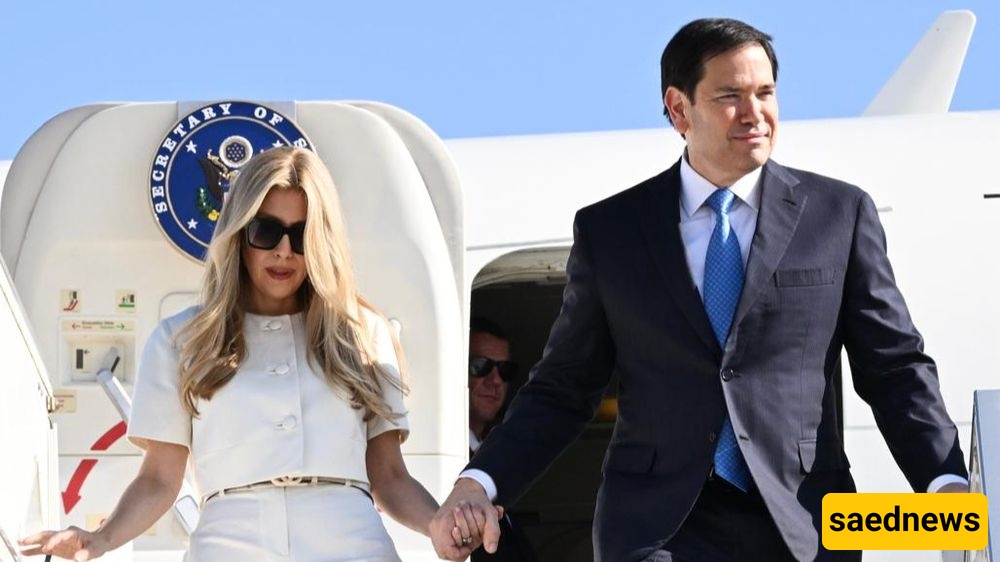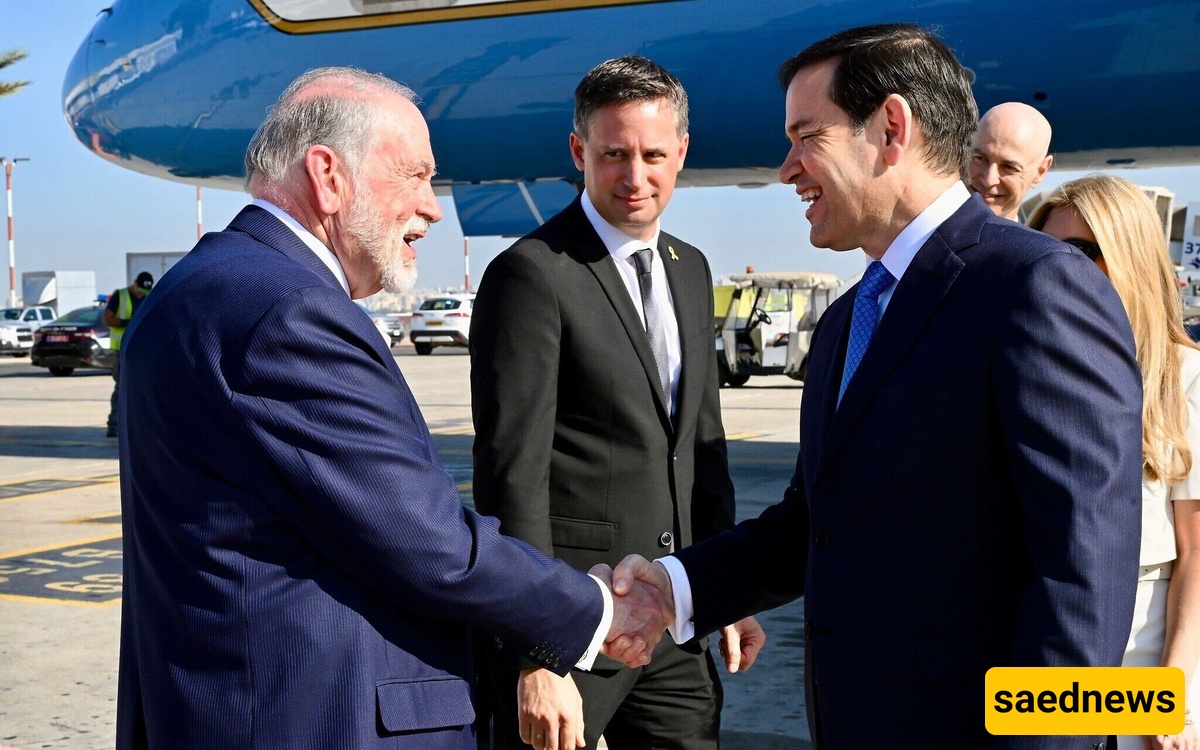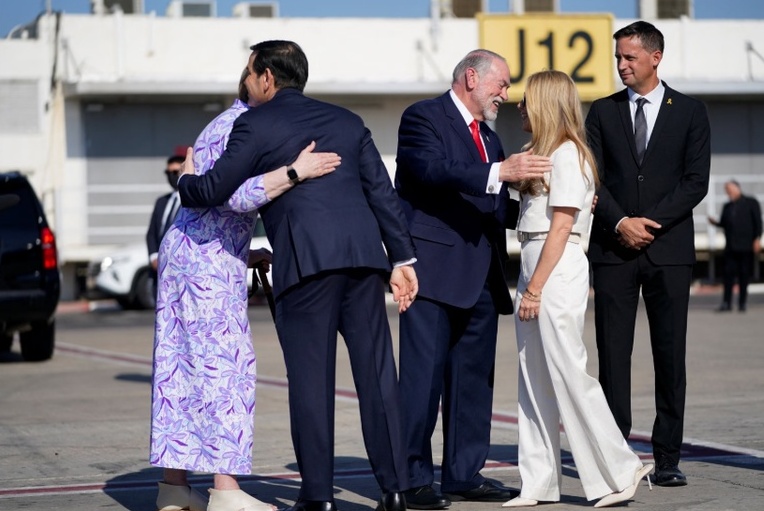SAEDNEWS: US Secretary of State Marco Rubio has arrived in Israel to meet Prime Minister Benjamin Netanyahu amid global outrage over Israel’s unprecedented strike on Qatar, which killed six people and derailed ceasefire talks, as the war on Gaza intensifies.

According to Saed News; United States Secretary of State Marco Rubio arrived in Israel on Sunday for a high-stakes visit aimed at containing the political and diplomatic fallout from Israel’s unprecedented airstrike on Qatar last week. The attack, which targeted Hamas leaders meeting in Doha, killed six people — including a Qatari security officer — and derailed fragile ceasefire negotiations in the war on Gaza.
Before departing Washington, Rubio told reporters that President Donald Trump was “not happy” with the strike but insisted it would not alter Washington’s relationship with Israel. “It’s not going to change the nature of our relationship,” Rubio said, while acknowledging the attack complicated ongoing truce efforts.
Trump, who has grown increasingly vocal about ending the war, wants Hamas to release 48 hostages “all at once” and for Israel to ensure Hamas never re-emerges. “Then we move to the next phase — how do you rebuild Gaza?” Rubio explained, adding that questions over who would oversee and finance reconstruction remain unresolved.

Rubio’s trip, which includes meetings with Prime Minister Benjamin Netanyahu, is widely viewed as damage control after Israel’s strike on a key US ally. Qatar hosts vital US military facilities and has played a central role in brokering past truces between Israel and Hamas.
From Amman, Al Jazeera’s Hamdah Salhut noted that US and Israeli messaging were “not fully aligned.” While Washington has promised the strike would not be repeated, Netanyahu suggested otherwise, vowing that the incident “perhaps won’t be isolated.”
The conflicting signals reflect a growing rift between the allies. US officials called the strike a “unilateral escalation” that undermined American diplomatic efforts. Arab states quickly condemned Israel, with Doha convening an emergency Arab-Islamic summit on Monday.

The Qatar attack came just as ceasefire talks were gathering momentum, led by Doha and supported by Washington. With Hamas leadership escaping unharmed, Israel claimed the meeting underscored Qatar’s support for the group. Netanyahu has since demanded Hamas leaders be expelled from Qatar, further straining diplomatic ties.
For its part, Hamas has said it is ready to release captives and cede control of Gaza to an interim Palestinian administration in exchange for a full Israeli withdrawal and an end to the war. But Netanyahu has continued to press for harsher measures, including the expulsion of Gaza’s population and expanded settlement construction in the occupied West Bank.
The backlash has not been limited to Arab states. At the United Nations, the General Assembly overwhelmingly backed a revival of the two-state solution, directly challenging Israel’s rejection. France, the UK, and other Western nations are reportedly preparing to recognize Palestinian statehood out of frustration with Netanyahu’s conduct.
Meanwhile, Rubio has framed his mission in Israel as humanitarian as much as strategic. In a post on X, he said his focus would be “on securing the return of hostages, finding ways to make sure humanitarian aid reaches civilians, and addressing the threat posed by Hamas.”
As the war on Gaza enters a new and bloodier phase, Rubio’s challenge is to bridge the widening gap between Trump’s call for an end to the fighting and Netanyahu’s determination to press on militarily. With global patience wearing thin and regional anger mounting, the Secretary of State’s visit could mark either a turning point in diplomacy or yet another sign of deepening fractures in US–Israeli relations.

